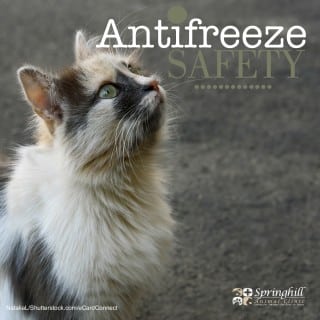Feline immunodeficiency virus, or FIV, is a chronic illness that severely weakens a cat’s immune system. It is typically spread between cats by deep bites or, rarely, from a mother cat to her kittens.
Cats infected with the disease may not show symptoms for years or may have periods of sickness alternating with periods of health. All cats should be tested for FIV by blood testing before being introduced to other cats. If you suspect your cat may have been infected, make an appointment right away for an examination.
Signs to watch for include:
– Enlarged lymph nodes
– Fever
– Anemia
– Weight loss
– Disheveled coat
– Loss of appetite
– Diarrhea
– Inflammation of eyes, gums or mouth
– Dental disease
– Hair loss
– Wounds
– Sneezing
– Frequent urination
– Changes to behavior
The best way to prevent the disease is to keep your cat indoors. Vaccines are available but are not the best option for every pet. The disease is exclusive to cats and can’t be spread to humans or other animals. Outdoor male cats who are prone to fighting are at greatest risk of contracting the disease.
FIV can lead to secondary infections and increases the chances of diseases such as cancer, blood diseases and kidney failure. There is no treatment or cure for FIV, but treatment of secondary illness is possible to help keep your kitty as comfortable as possible. These measures may include a healthy diet free of raw foods, fluid and electrolyte replacement, anti-inflammatory drugs, immune-enhancing drugs and parasite control. An FIV-infected pet also should be kept indoors to avoid stress and prevent spreading the disease to other cats.
Contact our office to discuss measures for preventing or managing the disease. If you suspect your cat may have been infected, schedule an appointment right away!



